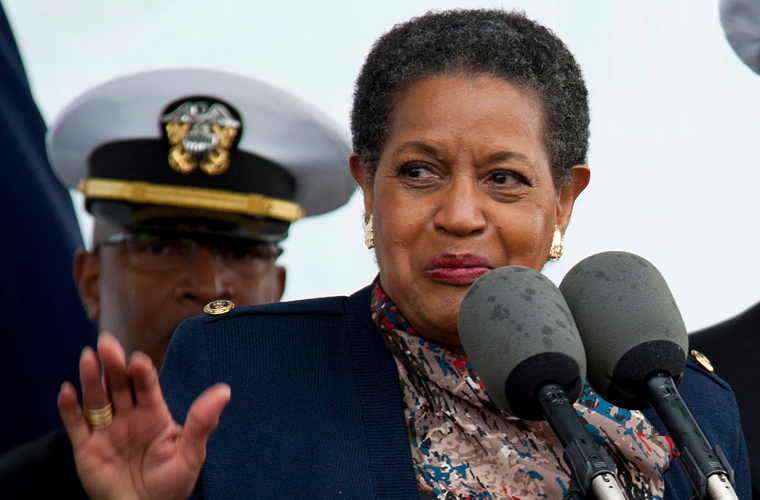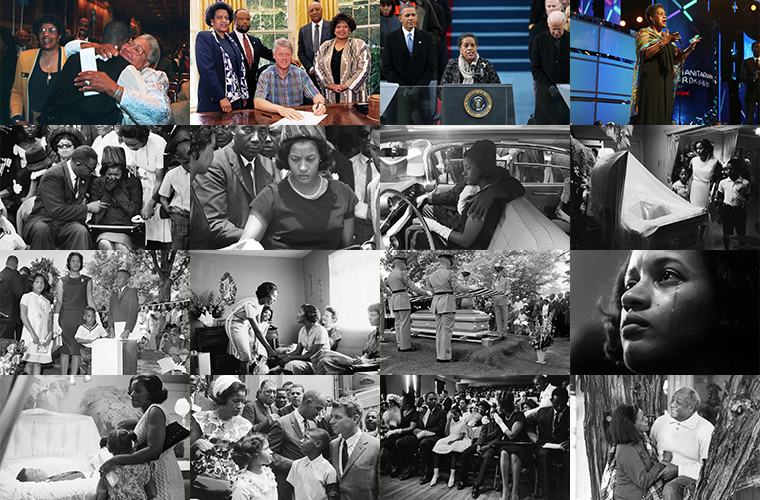Myrlie Evers-Williams is a name that resonates with the struggle for civil rights in America. A tireless advocate for equality and justice, she has dedicated her life to fighting against racial discrimination and promoting social change. From her early days as a student activist to her influential role as the chairwoman of the NAACP, Evers-Williams has left an indelible mark on the history of civil rights.
Born on March 17, 1933, in Vicksburg, Mississippi, Myrlie Beasley grew up in a racially segregated society. She witnessed firsthand the injustices faced by African Americans and vowed to make a difference. Inspired by the teachings of Dr. Martin Luther King Jr. and the Civil Rights Movement, Evers-Williams became actively involved in the fight for equality.
In 1951, Myrlie Beasley enrolled at Alcorn A&M College, now known as Alcorn State University, where she studied sociology and political science. It was during her time at Alcorn that she met her future husband, Medgar Evers, a prominent civil rights activist. The couple married in 1951 and together embarked on a lifelong journey of activism and advocacy.
Tragedy struck on June 12, 1963, when Medgar Evers was assassinated outside their home in Jackson, Mississippi. Devastated by the loss of her husband, Myrlie Evers-Williams found the strength to carry on his work and became a leading figure in the civil rights movement. She tirelessly fought for justice and worked to ensure that her husband’s death would not be in vain.
In the years following Medgar’s death, Evers-Williams faced numerous challenges and obstacles. She encountered resistance from those who opposed her activism and endured threats to her own safety. However, she remained undeterred, using her voice to advocate for change and to shed light on the injustices faced by African Americans.
In 1995, Evers-Williams made history by becoming the first woman to chair the National Association for the Advancement of Colored People (NAACP). During her tenure, she focused on expanding the organization’s reach and increasing its impact. Under her leadership, the NAACP launched initiatives to address issues such as voter suppression, police brutality, and educational inequality.
Evers-Williams has also been a vocal advocate for racial reconciliation and healing. In 2013, she delivered the invocation at the second inauguration of President Barack Obama, marking a significant moment in American history. Her presence at this historic event symbolized the progress that had been made in the fight for civil rights.
Throughout her life, Myrlie Evers-Williams has received numerous accolades and honors for her tireless work. She has been awarded honorary degrees from prestigious universities and has been recognized as a champion for justice and equality. Her unwavering commitment to civil rights has inspired generations of activists and continues to shape the landscape of social justice in America.
As we reflect on the legacy of Myrlie Evers-Williams, we are reminded of the power of one individual to effect change. Her courage, resilience, and unwavering dedication serve as a testament to the strength of the human spirit. Evers-Williams has left an indelible mark on the history of civil rights and her legacy will continue to inspire future generations to fight for justice and equality.
In conclusion, Myrlie Evers-Williams is a trailblazer in the fight for civil rights. Her lifelong commitment to equality and justice has made a lasting impact on American society. Through her activism, leadership, and unwavering determination, she has paved the way for a more inclusive and just future. Myrlie Evers-Williams will forever be remembered as a champion for civil rights and a beacon of hope for all those who strive for a better world.


